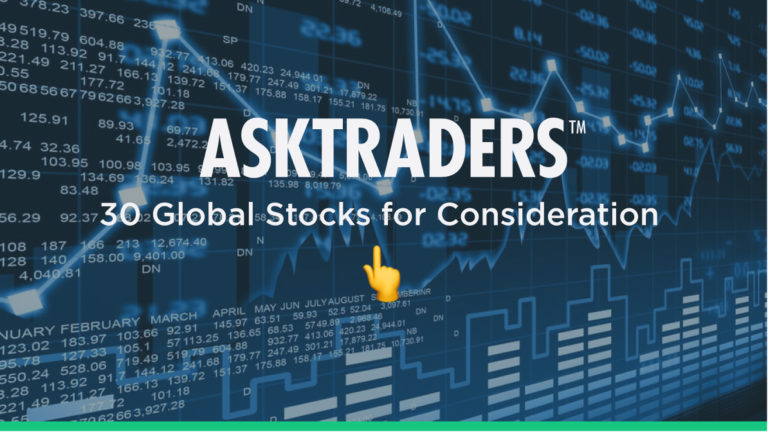
The focus in 2020 was to pick stocks that could benefit from pandemic-related lockdowns, while in 2021, the best performers will earn their marks from a return to normalcy and a recovering global economy. Here are some key insights when it comes to global stocks:
- Businesses were forced to address cost inefficiencies within their respective operations. As a result, an earnings rebound in 2021 could drive valuations to new highs, but the timing of these gains will be tied to several factors.
- A major stimulus bill has already been adopted in the US market, but its rollout could have varying consequences.
- Vaccine distribution will also be a hot issue, and the geographic rollout to the citizenry will also dictate how and when many service industries bounce back.
Under this backdrop, we have listed 30 stocks that warrant your consideration during 2021. Many of these stock picks have been at the top of most lists for years and will not be a surprise to you. A few of these selections, however, are expected to benefit from a recovery after having been beaten down in 2020. The timing of revenue rebounds and the efficacy of cost-cutting measures in 2020 will determine whether these jewels shine again in the years to come. In some cases, the market may have already overvalued the current potential, but the long-term opportunity may still be there. Timing of your entry will be critical. Share price and market cap data are as of mid-March 2021.
The stocks highlighted below are not meant to be a diversified portfolio. They have been chosen based on the potential foreseen over the ensuing 12 months and beyond. If you have diversification concerns, the best path to take is to concentrate your holdings in an appropriate exchange-traded fund (ETF) that focuses on global stocks. One fine example is the Vanguard Total World Stock Index Fund, but there are several others that could meet your expectations.
Our stock selections follow in alphabetical order with share prices listed as at March 2021.
Global Stocks That Warrant Your Consideration (Top 10)
- Anheuser-Busch InBev
- Activision Blizzard
- Adobe
- Albermarle Corporation
- Alibaba Health
- ArcelorMittal
- Boeing
- Chi-Med
- China Feihe
- China Tourism Group Duty Free
1) Anheuser-Busch InBev (ABI – BB Equity)
Anheuser-Busch is a global brewing giant that controls over 500 beer brands, along with other alcoholic beverages and soft drinks. It was founded in the 1850s and has its headquarters in St. Louis, Missouri. Its share price appreciated significantly during 2020, but has recently pulled back, thereby creating a Buy opportunity. However, the company has warned that exchange rates and increasing commodity prices could weigh heavily on its performance going forward. The closure of bars and restaurants may have had a negative impact on sales, but early results have also shown that in-home purchases of alcoholic beverages have soared during the past year.
Analysts contend that Anheuser-Busch is a leader within its market segment and has benefited greatly from efforts in customer segmentation, digitisation, and an organised recovery from the COVID-19 pandemic. During the preceding year, it locked in a 4% interest rate for its debt out to 2033, disposed of low-performing assets, and trimmed costs in its global operation. As the global economy recovers, the firm is well positioned for another year of growth and profitability.
| Current Price: | 52-Week Range: | Market Cap: |
| $62.24 | $32.58 – $72.41 | $122.4bn |
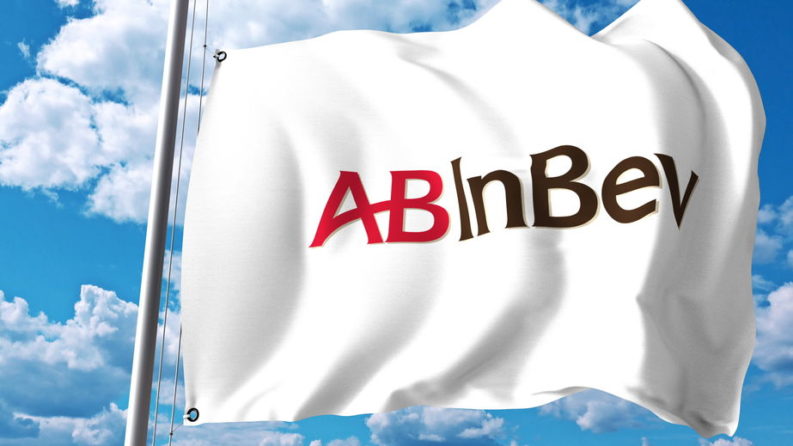
2) Activision Blizzard (ATVI – US Equity)
Activision Blizzard is a primary developer and publisher of interactive entertainment games and content. It distributes its products in the US, Europe, the Middle East, Africa, and Asia Pacific. Its games can operate on consoles, PCs and mobile devices. The firm is known for its library of popular titles, including Call of Duty, World of Warcraft and Candy Crush Saga. The company is based in Santa Monica, California.
Activision benefited greatly from COVID-19 lockdowns, as monthly game usage stats soared during the first half of 2020. As people began to go back to work in the latter half of the year, declines were the norm, and, as a result, December quarter results did not beat expectations. Management has been cutting costs and has announced plans to invest heavily in content, the true driver of gamer activity. The stock may languish a bit in 2021, but many analysts staunchly believe that better results are yet to come.
| Current Price: | 52-Week Range: | Market Cap: |
| $89.71 | $51.38 – $104.53 | $69.5bn |

3) Adobe (ADBE – US Equity)
Adobe is a broad-based software development enterprise that has become synonymous with every aspect of creative development, marketing, and publishing of compelling content. Its three divisions provide a wide range of tools and solutions for professionals and their businesses, and then they assist them in monetising their efforts. The firm was founded in 1982, and has its headquarters in San Jose, California.
Did the COVID-19 pandemic affect this stock? From March of last year, Adobe shares have appreciated by 43%, but have been relatively flat in trading since August through March. Analysts today, however, are confident that Adobe will benefit from a general economic recovery – 20 out of 24 analysts in New York currently rate it a Buy, perhaps because it is so good at helping its customers compete in a digital world. When compared to its competitors, the consensus is that the firm remains relevant and is light years ahead in some regards.
| Current Price: | 52-Week Range: | Market Cap: |
| $439.18 | $281.10 – $536.88 | $210.5bn |
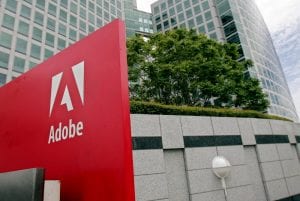
4) Albemarle Corporation (ALB – US Equity)
The Albermarle Corporation develops, manufactures, and sells engineered specialty chemicals globally. Headquartered in Charlotte, North Carolina, the company was founded in 1994. The firm’s products are integral components in the construction of batteries, various pharmaceuticals and plastics, and the oil and gas refinery market segment. Its share price has improved greatly in 2020, due primarily to the surging demand for electric cars. Timing of entry will be important in order to take advantage of the long-term prospects of the profitability of this firm.
As the pandemic subsides, general demand for building-block chemicals and backlogs in the global supply chain will dissipate. Albermarle is a key producer of lithium and bromine, the former benefiting from the ever-growing trend for electric cars. Lithium is a major component in batteries, and this company already has a lock on 30% of the global market for this ingredient. It has also just concluded expansion projects in Australia and Chile, which will ensure a healthy flow of raw materials over the next 10 years. Operating units that produce bromine and refinery catalysts are also cash positive, thereby providing more capital for the lucrative lithium trade.
| Current Price: | 52-Week Range: | Market Cap: |
| $156.19 | $48.89 – $188.35 | $18.2bn |
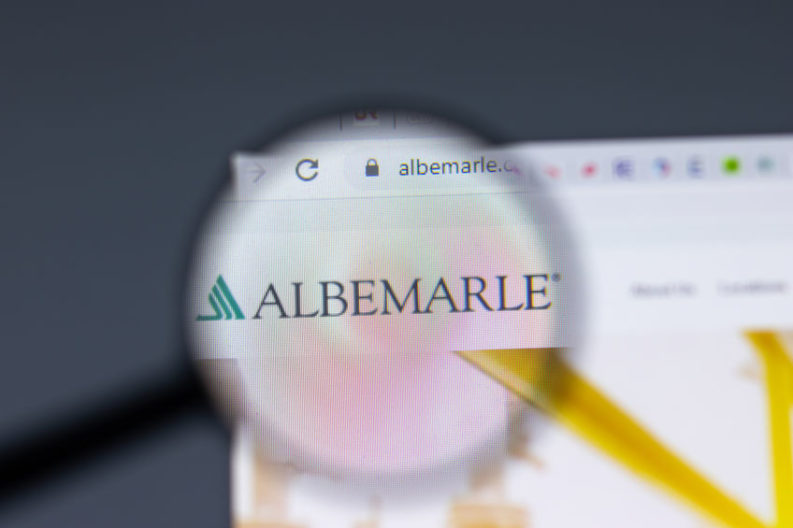
5) Alibaba Health Information Technology Limited (241 – HK Equity)
Alibaba Health is headquartered in Hong Kong and engages in several key health markets in the People’s Republic of China. These markets include marketing and distribution of pharmaceutical products via e-commerce, as well as online health consultation and telemedicine services. Online B2C retail is its forte, but it also prospers in B2B centralised procurement and distribution. The company’s share price doubled in value over the previous 12-month period, but expectations are that healthy growth will continue, based on its dominance in the Chinese market.
This health segment of the Alibaba family is well positioned in the China market and will be the most formidable player in online drug sales. According to Nikkie Lu, a senior equity analyst with Bloomberg: “The country’s push to separate drug dispensaries from hospitals and improve reimbursements will unlock major potential in a market projected to expand at least 30% a year through 2024.”
| Current Price: | 52-Week Range: | Market Cap: |
| $3.00 | $1.52 – $4.01 | $40.8bn |
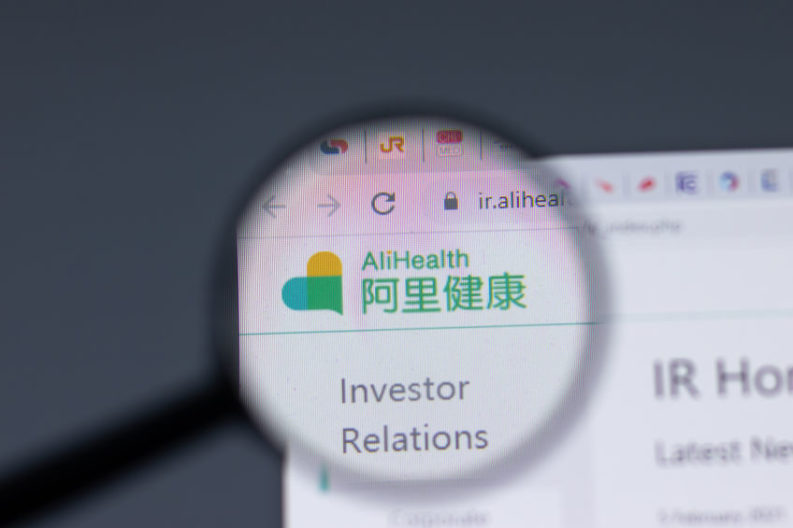
6) ArcelorMittal (MT – NA Equity)
ArcelorMittal is a steel and mining company, based out of Luxembourg. While demand for steel products fell during COVID-19 restrictions, the company went about the task of cleaning up its balance sheet and disposing of high-carbon-emitting assets. As a result, the firm’s debt load has been reduced, and it recently posted a net profit of $1.21bn for Q4 2020, versus a loss of $1.88bn for the same period in 2019. The share price has more than doubled over the previous 12 months, but with the efficiencies gained during 2020, the future appears brighter still.
Within the Basic Materials sector, ArcelorMittal has been outperforming its peers of late. According to one analyst’s report, the consensus estimate for the company’s full-year earnings has improved 140%, an indication that analyst sentiment for the stock is favourable. Current year-to-date earnings have moved 17.6%, whereas the average for its sector has been 11.5%. Part of the reason may be that the firm is a major supplier of specialty steel used in wind turbines, which are expected to grow significantly due to published requirements in the European Green Deal.
| Current Price: | 52-Week Range: | Market Cap: |
| $26.74 | $6.64 – $27.22 | $27.3bn |
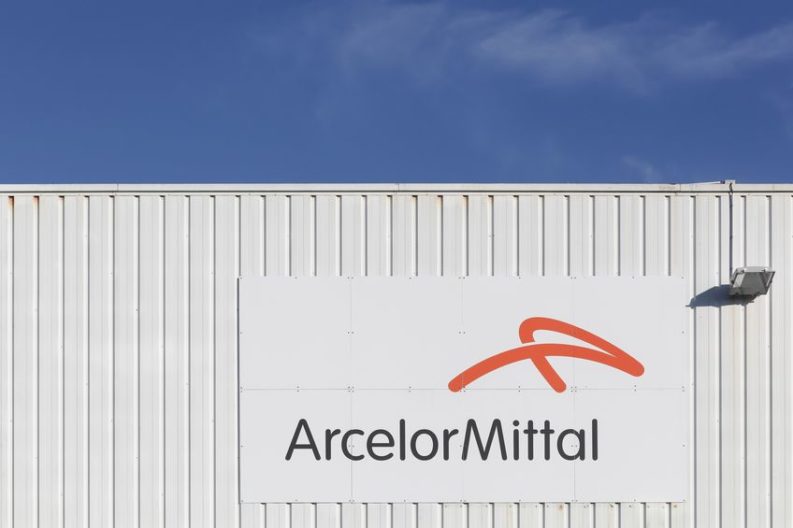
7) Boeing (BA – US Equity)
Based in the US, Boeing has been a stalwart in the airline industry since 1916. It covers every aspect from design to manufacture to sales and service of aircraft, whether they are for commercial use, military use, or utilised in human space flight. Its jetliners set the industry standard, but it is also a major player in the military and defence market, as well as the launching and maintenance of satellites. The firm has concentrated on recertifying its 737 MAX fleet, and the gradual ascent of its stock price is evidence that the market sees profitability headed its way.
Post-COVID-19 and after successful vaccination programmes, the travel industry is expected to recover nicely, which can only benefit Boeing. More demand for travel equates to more demand for its planes. During the pandemic in 2020, air travel was decimated, with average daily passenger loads cut down below 100,000. It has since risen to 1.3m, and analysts see positive potential for more gains over the horizon. Boeing shares are still 40% below their all-time high. Morgan Stanley analyst Kristine Liwag notes: “From our conversations with investors, the [aerospace] group is still largely under-owned.” She rates Boeing shares a Buy.
| Current Price: | 52-Week Range: | Market Cap: |
| $255.20 | $89.00 – $264.14 | $149.0bn |
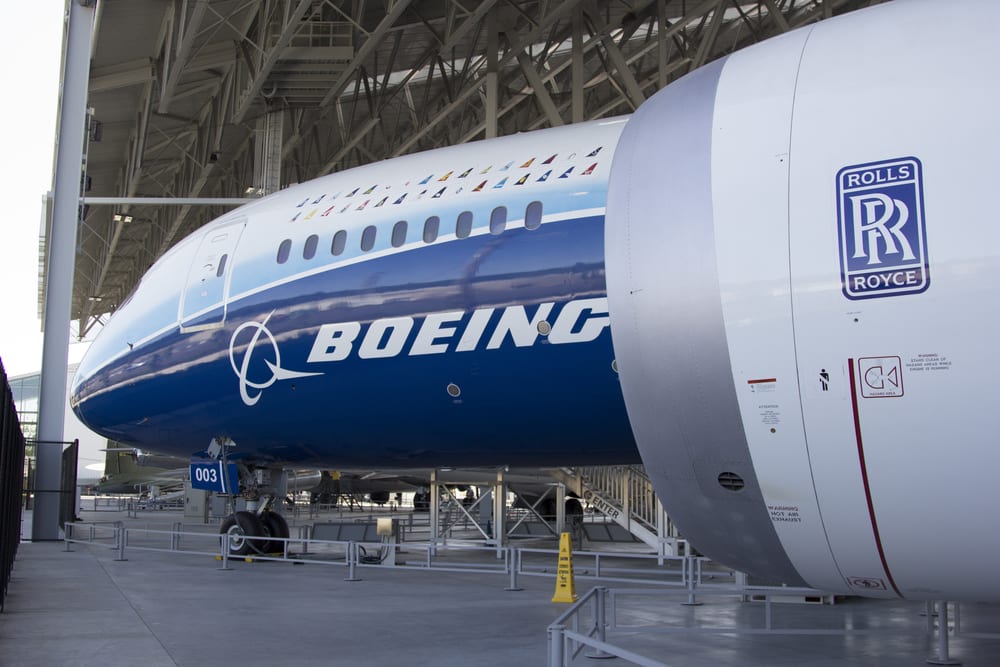
8) Chi-Med (HUTCHMED) (HCM – US Equity)
Officially known as Hutchison China MediTech Limited, HUTCHMED is a commercial-stage biopharmaceutical company. It performs research on, discovers, and develops a variety of targeted therapies primarily for cancer and other immunological diseases worldwide. It also develops and markets prescription drugs and over-the-counter pharmaceutical products. It was founded in 2000, and its headquarters is in Hong Kong.
This firm is known for its growing portfolio of successful anti-cancer therapies. When a new colorectal cancer therapy came on stream in 2020, the stock nearly doubled in value, but its price has remained flat since July. Analysts see favourable prospects on the horizon. Cinney Zhang, a pharma/biotech analyst, notes: “Colorectal cancer drug Elunate has already been added to China’s national reimbursement listing, and two more drugs, one for neuroendocrine tumors and the other for lung cancer, are poised for 2021 launches.”
| Current Price: | 52-Week Range: | Market Cap: |
| $28.63 | $15.17 – $37.00 | $4.0bn |
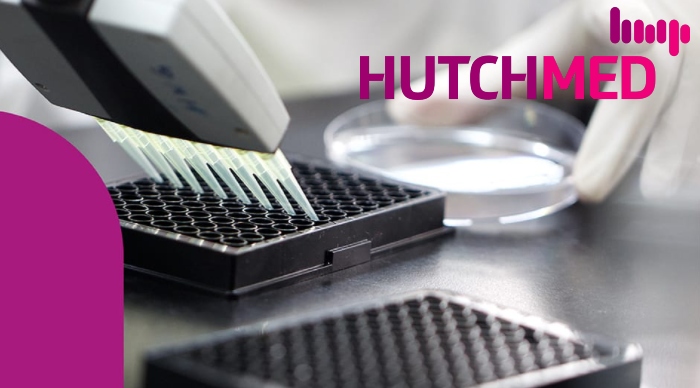
9) China Feihe (6186 – HK Equity)
China Feihe (CF) Ltd is into consumer-packaged goods, primarily any and everything to do with milk products, especially baby food formula. It also distributes vitamins, minerals, herbs, and other supplements through its extensive network of customers and retail points of sale in excess of 100,000. This network is also enhanced by its e-commerce presence on various online platforms, its website, and mobile phone app. CF also benefited during the pandemic, as demonstrated by its steady stock performance over 2020. Share prices more than doubled. Mainland China and the US are the mainstay markets for the company. Founded in 1962, CF is headquartered in Beijing.
The firm is currently on track to attain a 30% share of the enormous infant formula market in China. The COVID-19 crisis has devastated many emerging market offerings, but the China market has benefited from its burgeoning middle class and its penchant for spending on domestic brands. Baby formula is high on the list, and the pandemic has only strengthened the consumers’ resolve to buy local and shun the offerings of foreign rivals. Upscale products and high-quality materials have propelled this firm forward.
| Current Price: | 52-Week Range: | Market Cap: |
| $21.35 | $10.28 – $25.7 | $190.3bn |
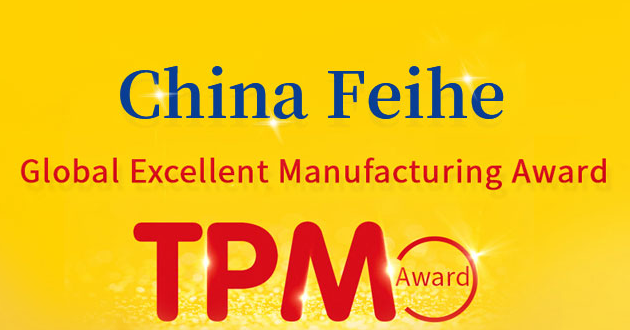
10) China Tourism Group Duty Free Corp Ltd (601888 – CH Equity)
China Tourism Group Duty Free, formerly China International Travel Service Corp, is a prime provider of travel services in mainland China. It provides tours and operates a broad network of duty-free shops in the country. These shops have received very high duty-free retail sales, which have recently benefited from local buying by Chinese consumers. The stock price has skyrocketed as a result of domestic purchases, doubling since June of last year. Headquartered in Beijing, the company is also involved in commercial complex investment development.
The China travel market has also been growing rapidly. While COVID-19 has restricted international visitors, travel-related firms have benefited from a domestic travel boom and the additional spending that comes with it. As for duty-free stores, the government tripled the spending quota for Chinese citizens, which ignited a luxury buying spree across the country, especially in the Hainan city of Sanya, which houses the world’s largest duty-free shopping mall. When international travel resumes, prospects for enhanced growth add to the appeal of this stock offering. Timing is important. Buy on major dips.
| Current Price: | 52-Week Range: | Market Cap: |
| $46.21 | $9.98 – $60.57 | $90.2bn |
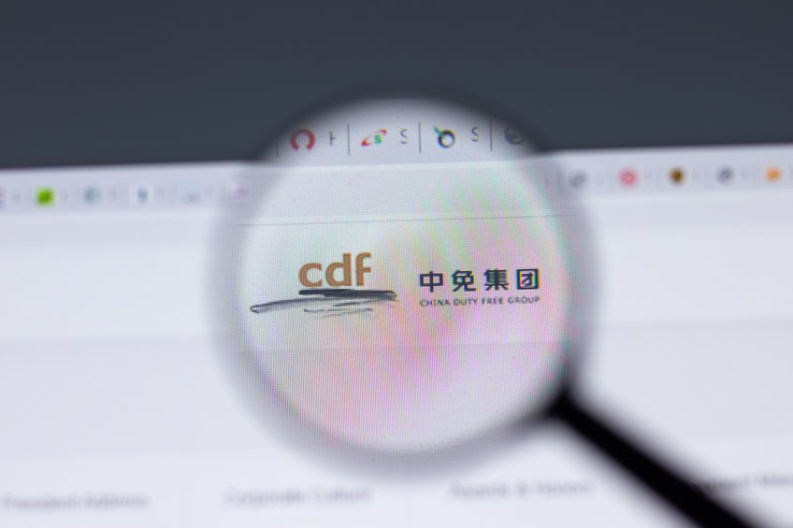
Best Brokers to buy Global Stocks:
eToro: 68% of retail CFD accounts lose money
Take a lookTickmill: FCA Regulated
Take a lookIG: Over 16k stocks to trade
Take a lookIf you are ready to add some global stocks to your portfolio you'll need a broker that is regulated, has low fees and a user-friendly platform. Finding one can be a daunting task, which is why we've selected some of our favourites that tick all of these boxes to help you get started.
11) Choice Hotels (CHH – US Equity)
The COVID-19 pandemic has been especially harsh to the travel industry, but a recovery is in sight, if and when vaccination regimens gain widespread acceptance. Choice Hotels is one international hotelier that is poised to prosper as normalcy returns. The firm has over 7,000 hotels and almost 600,000 rooms, spread across the US and 40 additional countries and territories. The company began business in 1939 and is headquartered in Rockville, Maryland.
In the hospitality industry, Choice Hotels is one of the few firms that have weathered the COVID-19 storm better than its competitors. The firm employs a franchise model, and since it does not own its properties, its overhead costs are lower. Choice franchises are also primarily located in suburban areas, where tourism has not been as affected by the pandemic. The company’s CEO expects these trends to continue, but it would be prudent to wait for a dip and some assurance that a recovery is real before buying.
| Current Price: | 52-Week Range: | Market Cap: |
| $109.50 | $52.54 – $114.83 | $6.1bn |
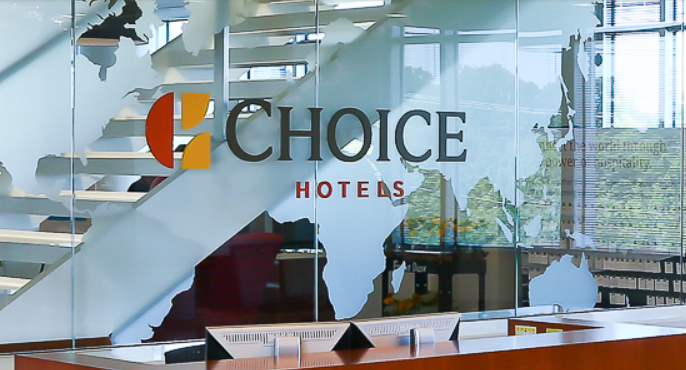
12) Cisco Systems (CSCO – US Equity)
When it comes to telecommunications and information technology, Cisco Systems is a formidable leader in the industry and well positioned for the ever-changing dynamic of the internet, Wi-Fi and virtual office evolutionary trends. It markets its infrastructure platforms in every major global market, provides technical support for its customers, and is prominent in security protocols across all network topologies, whether for small business or large institutions, including governments and corporate entities. Its stock dipped mid-year during the COVID-19 crisis, but it has since recovered. Founded in 1984, Cisco is based out of San Jose, California.
J.P. Morgan recently upgraded its rating of Cisco stock from neutral to Buy, based on its appraisal of how well the firm will benefit from increased IT spending over the next 12 months. The industry has had to accommodate a shortage in semiconductor chips due to high demand for virtual services brought on by the pandemic. J.P. Morgan advises that Cisco can outperform its peers with respect to the continuing shortage and is presently undervalued. Flexible office solutions, which are in high demand, can only play into the company’s many supportive services in that arena.
| Current Price: | 52-Week Range: | Market Cap: |
| $49.12 | $33.31 – $49.74 | $207.4bn |

13) CrowdStrike (CRWD – US Equity)
CrowdStrike is another firm that will also benefit from the wave of demand that is soon to buffet the fortunes of Cisco and similar companies. Founded in 2011 and based in Sunnyville, California, CrowdStrike provides security solutions for services that interact with the cloud. As already stated, the COVID-19 pandemic has increased demand for remote conferencing and virtual office environments, which, by their very nature, are more susceptible to hacker interference and compromise. As a result, the firm’s share price exploded on a long, gradual run-up during 2020. Its profits have since pulled back moderately.
Known for its varied product offerings and their ease of installation, CrowdStrike remains a favourite of investors. Presently, the company only serves six major markets – the US, Australia, Germany, India, Romania, and the UK. There is definitely room for expansion. For the time being, however, recent results beat estimates, and the management team also provided an upbeat outlook for the future. To suggest that momentum is building for this stock may be an understatement.
| Current Price: | 52-Week Range: | Market Cap: |
| $200.01 | $35.50 – $251.28 | $44.2bn |
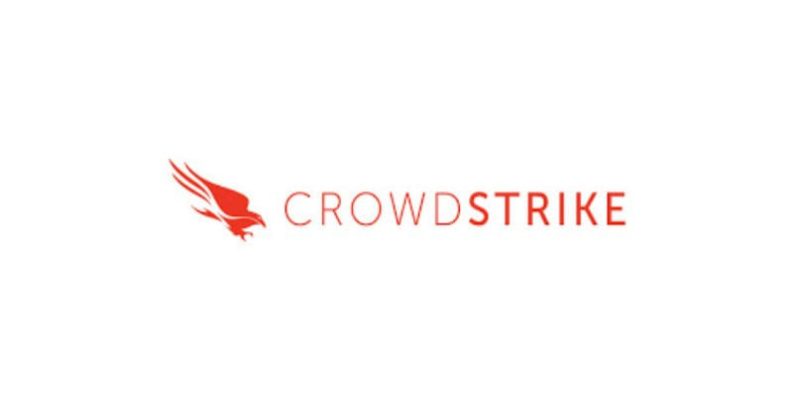
14) Expedia Group (EXDPE – US Equity)
Expedia Group is another travel-related enterprise that is primed to benefit from a return to normalcy after the COVID-19 crisis. Expedia and its subsidiaries operate as an online travel agent for the booking of all manner of travel-related services for global retail and business clients across the globe. The firm also provides corporate travel management and media services. The company was founded in 1996, and is based in Seattle, Washington.
Expedia shares have doubled in value since the announcement of COVID-19 vaccines, while a new CEO has been tending to a cost reduction regimen across the enterprise. Investor exuberance appears to have driven share values to historically high P/E values of late, but the company may post losses before getting back in the black. If a significant dip occurs after poor earnings, then expect a buying opportunity.
| Current Price: | 52-Week Range: | Market Cap: |
| $166.14 | $46.15 – $187.93 | $23.90bn |

15) Exxon Mobil (XOM – US Equity)
Exxon Mobil is the largest integrated energy company in the world, based on market cap alone. As with its major competitors, it operates upstream and downstream processes to discover crude oil reserves, refine them, and then market and deliver the final petrochemical products to consumers and businesses. As of the end of 2020, it had in excess of 22,000 operating wells with proven reserves. Founded through a merger between Exxon and Mobile in 1999, Exxon Mobil is headquartered in Irving, Texas.
Analysts tend to favour a leader, but with Exxon, its loyalty is based on the firm’s ability to do a much better job at integrating its operations than its competitors, which, as they opine, just own the assets. Higher margins are evidence of these efficiencies, and with a general rebound in travel post-COVID-19 coupled with rising oil prices, the potential for extended profitability is assured. Its share price dipped in 2020, but it has recovered and is now targeting the $74 range.
| Current Price: | 52-Week Range: | Market Cap: |
| $56.34 | $31.11 – $57.28 | $238.517bn |
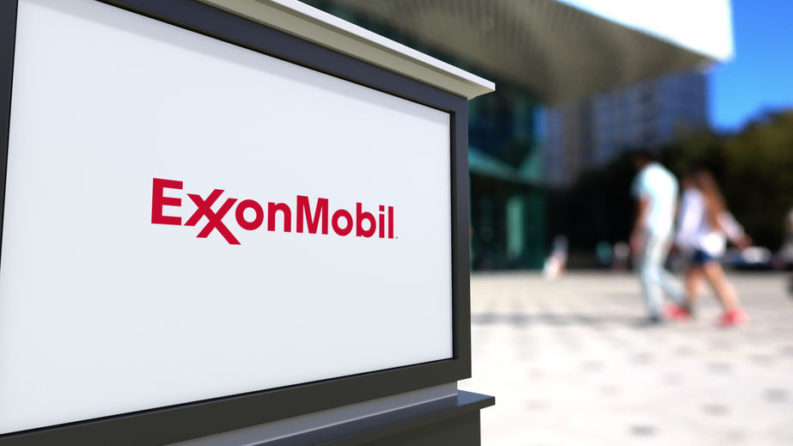
16) Graphic Packaging (GPK – US Equity)
As a relatively small enterprise when its market cap is compared to the behemoths discussed above, Graphic Packaging is, perhaps, the sleeper in this group. The firm is a major player in the paper-based packaging market, which has made significant inroads in replacing prevalent plastic solution sets. Paperboard products are its specialty in all forms, including recycled materials. Its share price has appreciated steadily over the past year, in excess of 75%. The company also designs and manufactures customised packaging equipment, which it installs and maintains at selected customer sites. Headquartered in Atlanta, Georgia, the firm was incorporated in 2007.
As the negative environmental press for plastic containers continues to grow, the fortunes of Graphic Packaging can only increase. The firm has also spent the last year completing capital development projects and preparing for future expansion. Its new plant should come on stream in 2021, thereby ensuring a boost in cash flow in 2022. Its ecologically friendly product offerings are now in high demand in the food and beverage industry, and with increased capacity, analysts have surmised that there is more upside potential for this stock.
| Current Price: | 52-Week Range: | Market Cap: |
| $17.77 | $10.41 – $18.22 | $4.8bn |
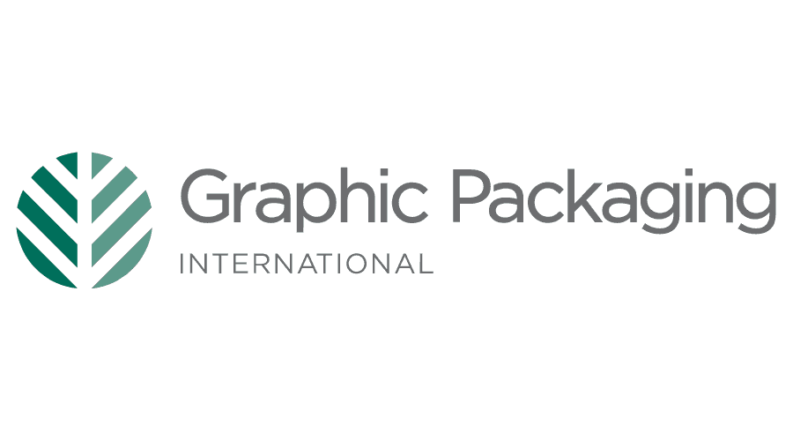
17) Henkel AG & Co (HEN – GR Equity)
Henkel is also positioned nicely to benefit from the burgeoning impact of the green revolution. While better known for its beauty care and cosmetic, laundry, and home care product lines, the firm is an acknowledged expert in the industrial adhesive field. Over the years, it has amassed an impressive 25% market share in this sector. Its products are ecologically sensitive, which added to the allure of this company’s stock, as it appreciated moderately during the previous year. Henkel was founded in 1876 and is based out of Düsseldorf, Germany.
HENKY, the firm’s call sign in the OTC markets, has gradually been winning over the analyst community, which had had a prevailing consensus rating of Hold or neutral. It has been shifting of late towards Buy and overweight. Duncan Fox, an analyst with Bloomberg, has been focusing on the adhesive excellence of the firm’s product line and believes that this advantage will be a game changer: “Its expertise in the field is at the center of the green-products revolution. The company’s adhesives are optimal for recyclable packaging, more efficient batteries, and lighter car and jet bodies.”
| Current Price: | 52-Week Range: | Market Cap: |
| $23.51 | $14.62 – $25.31 | $41.2bn |
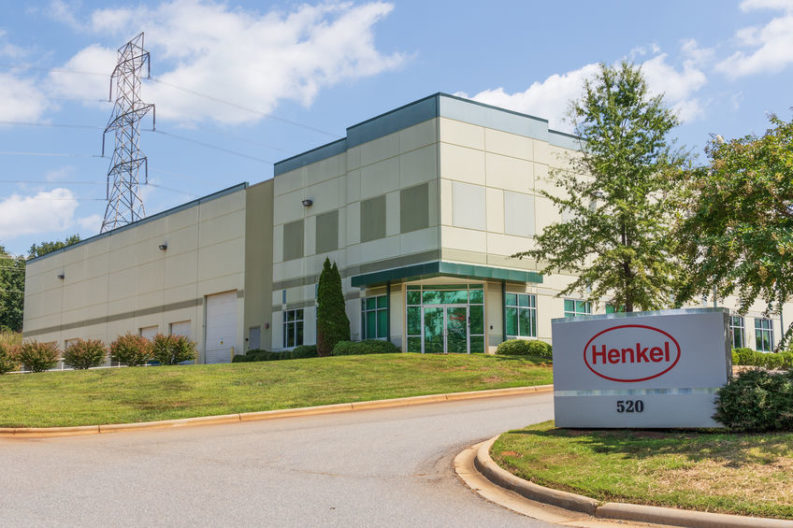
18) Honeywell International Inc. (HON – US Equity)
Honeywell International Inc. is a global diversified technology and manufacturing company. It has a major presence in the aerospace industry, producing everything from rocket engines to aircraft wheels and brakes. The firm also has major segments involved in building technologies, performance and automated controls, and safety and productivity solutions. Founded in 1885, the company is based in Charlotte, North Carolina.
Honeywell has always been a favourite of analysts and investors. It has a history of excellence in managing its operations, a clean balance sheet, and true growth potential in each of its four business segments. The issue, however, is whether its doubling in value over the past year restricts future gain opportunities. There is always room in a portfolio for a top-quality company but wait for a double-digit dip before buying.
| Current Price: | 52-Week Range: | Market Cap: |
| $215.02 | $101.08 – $219.00 | $149.5bn |
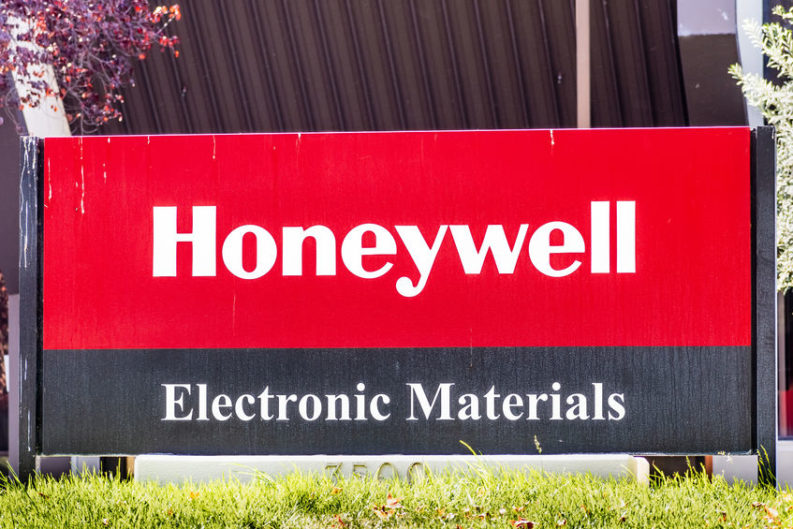
19) InterContinental Hotels Group (IHG – US Equity)
Another hotel chain that can benefit from a COVID-19 recovery is InterContinental Hotels Group. It owns and manages nearly 6,000 hotels spread out over the Americas, Europe, Asia, the Middle East, and Greater China. For its 883,000 rooms in over 100 countries, it also operates restaurants, resort accommodations, and spas at selected locations. The firm’s origins can be traced back to 1777, and it is based in Denham, UK.
Despite being beaten back by COVID-19, the management team at InterContinental has spent its time dealing with internal liquidity and cost issues in preparation for the eventual recovery from the pandemic. For these reasons, the majority of analysts contend that this hotel group will perform much better than most of its competitors and further strengthen its overall competitive position.
| Current Price: | 52-Week Range: | Market Cap: |
| $70.33 | $29.71 – $75.20 | $12.7bn |
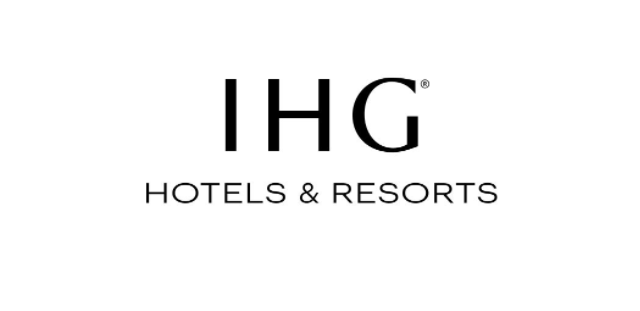
20) The Kroger Co. (KR – US Equity)
The Kroger Co. operates the largest traditional supermarket chain in the US, though over the past several years, it has also established a presence in retail department stores, drug stores, gasoline sales, and other home goods and furnishings. The expanded offerings appeal to consumers who prefer this one-stop shopping approach. Profit margins in the grocery industry, however, have always tended to be slight, which requires healthy innovation to succeed. Founded in 1883, Kroger is headquartered in Cincinnati, Ohio.
The share price range below is a bit misleading. Except for an occasional spike, Kroger has been bouncing along in quite a tight range. The word on the street, however, is that Warren Buffett is increasing his stake in the company. The firm is flush with cash and has been honing its skill in digital sales and curbside service. A partnership with British online grocer Ocado Group is expected to accelerate e-commerce sales, improve inventory management, and improve overall cost efficiencies.
| Current Price: | 52-Week Range: | Market Cap: |
| $35.26 | $27.33 – $42.99 | $26.7bn |
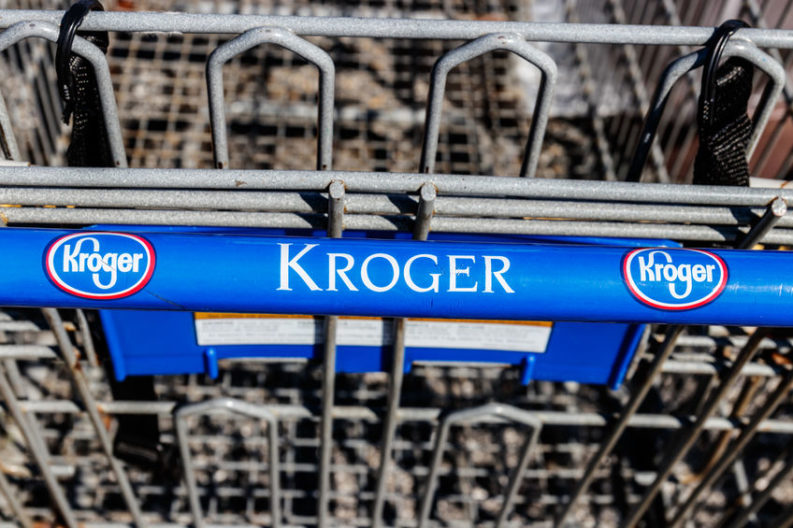
21) LG Chemical (051910 – KS Equity)
With electric cars gaining traction, do you want to invest in one of the top producers of batteries? If so, then LG Chemical is worth a look. LG Chemical is actually involved in almost everything to do with petrochemicals, with product offerings in pharmaceuticals, fertilizers, resins, adhesives, and, finally, energy storage system batteries. Based out of Seoul, Korea, the company was founded in 1947.
The firm is destined to become the top producer of batteries, courtesy of a pending deal to supply batteries for the Tesla Model Y electric automobile. Sector revenues could grow at a 30% annual clip through 2023. Stock prices have ascended rapidly over the past year but have levelled off due to major battery recalls. However, the firm is also working with GM to open a battery plant in Tennessee, which should offset these costs.
| Current Price: | 52-Week Range: | Market Cap: |
| $762.7 | $204.7 – $934.5 | $61.4bn |
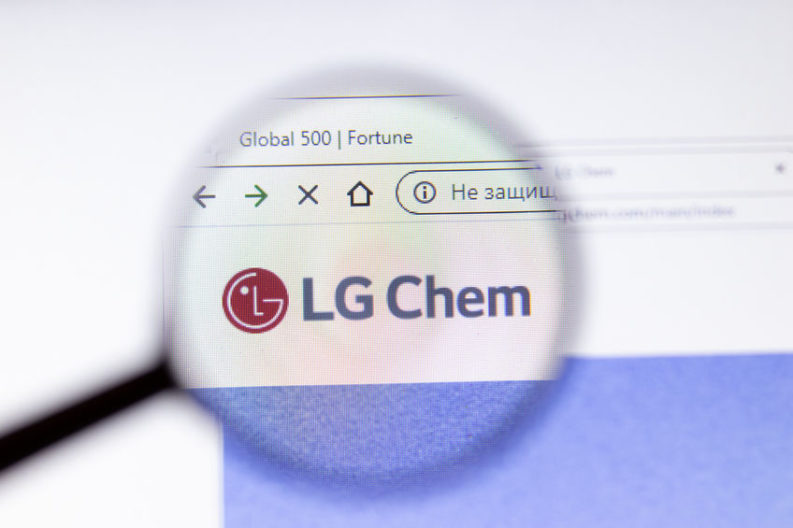
22) Nintendo (7974 – JP Equity)
Has the COVID-19 crisis been a boon for the gaming industry? As for video games, it would appear to be so, since Nintendo’s share price doubled during the last 12 months, only to pull back slightly in 2021.This electronic gaming and multimedia powerhouse has made the most of the pandemic slowdown by putting the finishing touches on a new version of its popular Switch gaming platform. Nintendo was founded in 1889 when the focus was on playing cards. Constantly evolving, it is based in Kyoto, Japan.
Nintendo has recorded enormous growth in its Switch system revenues, even though the product line has been out for more than four years. Analysts feel that it has more room to run. Unlike Sony and Microsoft (its direct competitors), it has a library of very popular titles such as Mario and The Legend of Zelda, which are continually being upgraded to run in high-definition environments. These games will likely drive demand for their new hardware.
| Current Price: | 52-Week Range: | Market Cap: |
| $73.12 | $39.99 – $82.55 | $67.1bn |
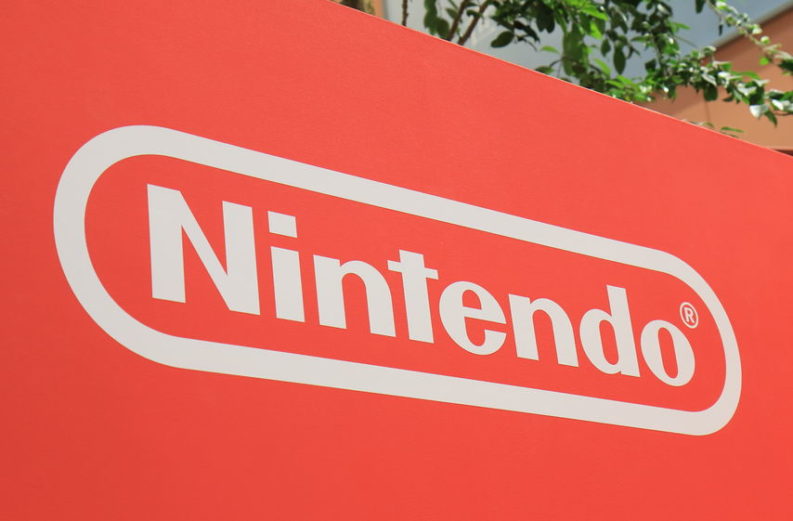
23) NIO Limited (NIO – US Equity)
NIO Limited is a major manufacturer and distributor of electric cars in the People’s Republic of China, Hong Kong, the US, the UK, and Germany. The firm also supplements its car fleet with charging solutions, battery swapping, insurance, repair and maintenance, and roadside assistance services. Founded in 2014, NIO has its headquarters in Shanghai, China.
One consequence of the COVID-19 crisis is that it caused a shortfall in the supply chain for computer chips. Electric vehicle (EV) stocks, however, were in high demand in 2020, driving share prices to new and dramatic highs. The issue now is how these firms will adapt to a gradual recovery of chip resources. NIO chose to raise additional capital, thereby diluting investor share values, but the business continues to grow at a quickened pace. The Chinese government wants to accelerate growth in this arena. NIO is poised to take advantage of this support, but prices could gyrate, suggesting a long-term play.
| Current Price: | 52-Week Range: | Market Cap: |
| $41.67 | $2.15 – $41.54 | $65.0bn |
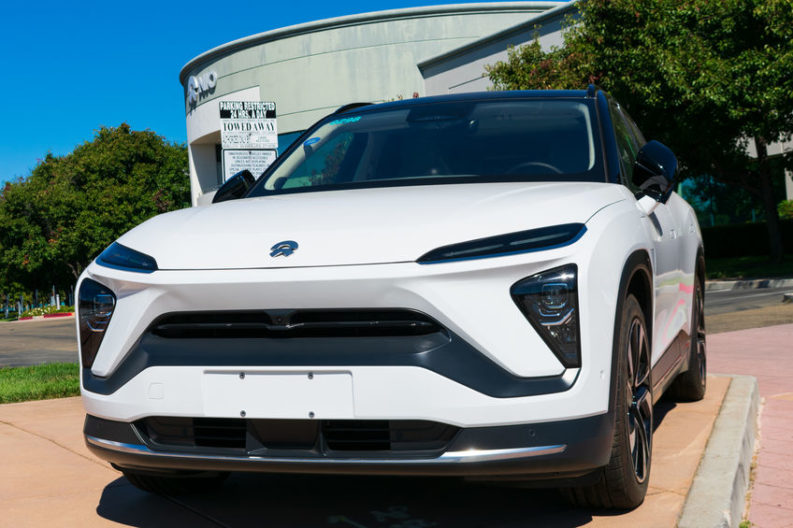
24) PayPal Holdings Inc. (PYPL – US Equity)
PayPal Holdings Inc. is a payment processing giant that facilitates online transactions for the benefit of consumers and merchants worldwide. The firm also provides credit services, electronic wallet capabilities, and a host of payment-related support functions. It began in 1998 as a risk arbitrage agent between banks and merchants when the risk potential of e-commerce transactions was in doubt. Based in California, the firm has grown dramatically over the past two decades to become a key player in the integrated global payment system.
PayPal is one company that benefited from the COVID-19 crisis, as consumers increased their at-home purchases and relied upon emerging digital wallet systems to enable their buying needs. PayPal is in the forefront of this digital revolution and could easily sustain growth in excess of 20% in the years ahead. Its share price reflects these expectations, having more than tripled during the past year. Time your entry on the dips.
| Current Price: | 52-Week Range: | Market Cap: |
| $245.00 | $82.07 – $309.14 | $287bn |
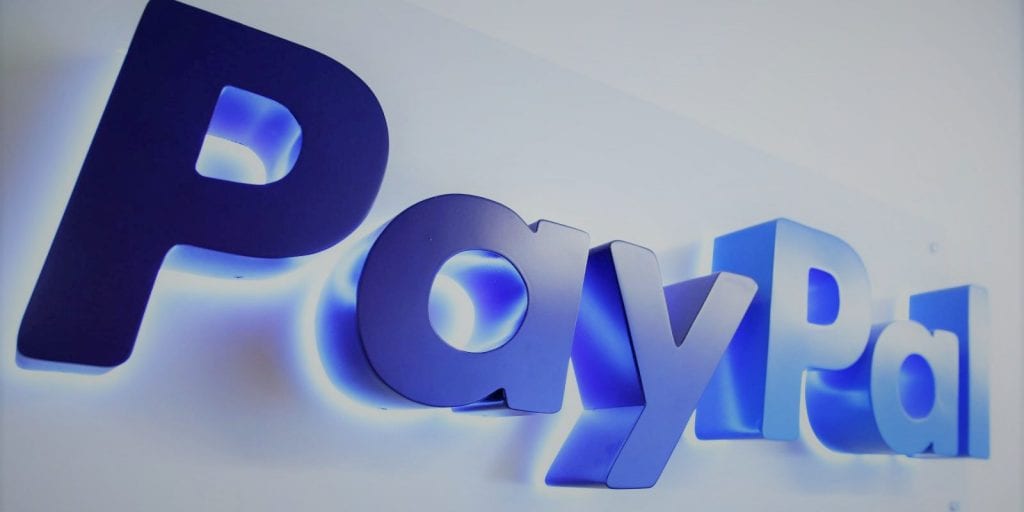
25) PNC Financial Services Group Inc. (PNC – US Equity)
Investors tend to shy away from banking interests, but PNC Financial Services Group Inc. has always been an attractive investment. The bank is organised to serve retail consumer, commercial and institutional, and asset management clients, as is the accepted formula for the top 10 banks in the US. PNC is always vying for a ranking in the top five. The bank was founded in 1852 and is based out of Pittsburgh, Pennsylvania.
How has COVID-19 impacted the bank? Surprisingly, the group’s share price in March of last year was $102 but shot up 78% in the months that followed. This quick appreciation is perhaps the reason why the consensus of a majority of analysts is a Hold status for PNC. With the acquisition of the US division of the Spanish BBVA group, PNC quickly vaulted into seventh place in the bank rankings. Insiders view the M&A buyout as a good strategic step for PNC, opening up markets in Texas and the Sun Belt.
| Current Price: | 52-Week Range: | Market Cap: |
| $178.43 | $79.41 – $181.53 | $75.7bn |
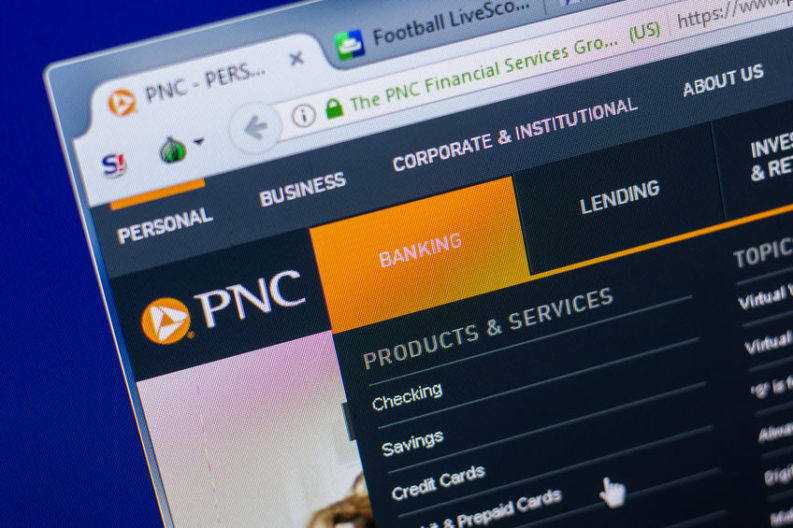
26) Seagen Inc. (SGEN – US Equity)
Seagen Inc. is a biotechnology firm that specialises in cancer-treating therapies, marketing them in the US, as well as globally. Its protocols are categorised as antibody-drug conjugates (ADCs), and the firm is in the forefront of developments in this arena. Seagen opened its doors for business in 1998 and is headquartered in Seattle, Washington.
ADC therapies are new and are gaining acceptance and popularity in the medical community. Seagen already has solution sets for Hodgkin lymphoma, various forms of breast cancer, and the treatment of other cancerous tumours. In 2020, the company received approval for additional cancer medications for both breast and bladder cancer, which caused a bump in its stock price. A cervical cancer protocol is also on track for approval in 2021. Seagen is currently expanding operations to leverage these gains.
| Current Price: | 52-Week Range: | Market Cap: |
| $147.24 | $94.32 – $213.94 | $26.7bn |
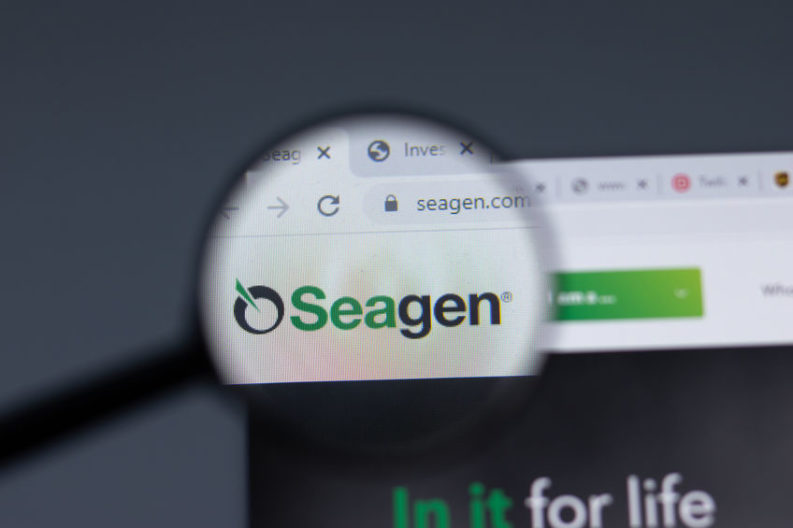
27) Teladoc Health Inc. (TDOC – US Equity)
Teladoc Health Inc. is a global leader in the field of virtual healthcare services on a business-to-business basis. Its clients include healthcare employers, health plans, hospitals, health systems, and insurance and financial service companies. Its telehealth services cover a wide variety of clinical conditions and provide related solutions and support in each regimen. The firm is based out of Purchase, New York, and was founded in 2002.
The COVID-19 pandemic dramatically increased the demand and adoption of the services and support of Teladoc. According to Jonathan Palmer, a senior analyst in the healthcare sector, Teladoc is striving to meet these demands, as well as multiplying these gains going forward. In addition, he notes: “Its $18.5 billion purchase of health-monitoring company Livongo gives it a way to tackle chronic care, most notably diabetes and hypertension.” Share price pullbacks may become a buying opportunity.
| Current Price: | 52-Week Range: | Market Cap: |
| $186.17 | $132.07 – $308.00 | $28.4bn |
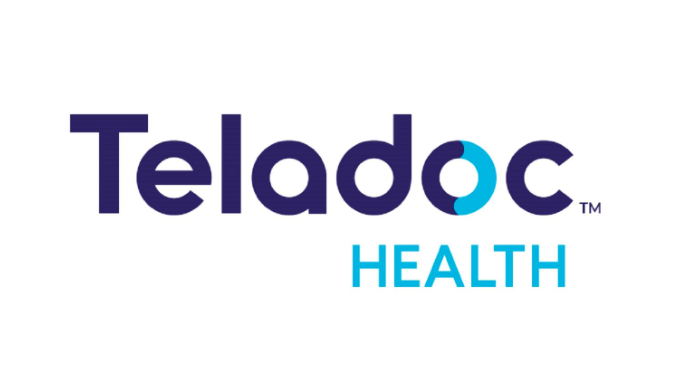
28) Twilio (TWLO – US Equity)
Twilio is in the cloud facilitation business, enabling customers and developers to easily access and operate software applications in a cloud environment. The company’s platform of services is robust from both a customer interface perspective, as well as for developers that wish to embed messaging and video within their applications. Founded in 2008, Twilio is headquartered in San Francisco, California.
For the past decade and more, businesses have been adopting the cloud as the most efficient way to operate from a cost standpoint, as well as to coordinate the varying aspects of their online and offline businesses. The omnichannel trend has also prevailed as the best way for customers to have a seamless, integrated shopping experience, and Twilio has emerged as the leader in this field. Share prices exploded over the past year, such that timing of your entry is required for potential future returns.
| Current Price: | 52-Week Range: | Market Cap: |
| $366.33 | $71.57 – $457.30 | $62.5bn |

29) United Parcel Service (UPS – US Equity)
United Parcel Service (UPS) has been a household name for as long as we can remember. In addition to basic letter and package delivery services across the globe, it also has a logistics division and a financial services group. For cross-border deliveries, the firm also helps clients with customs and freight issues, as well as coordinating supply chain dynamics. Based in Atlanta, Georgia, UPS has been in business since 1907.
Remote shopping by consumers online has grown significantly both domestically and internationally for the past decade and shows no signs of letting up. UPS has been a large beneficiary of this trend, which has only accelerated during the COVID-19 pandemic. Share prices jumped from May to August 2020, but they have plateaued for the past several months. UPS had to adapt to clients wanting thinner delivery margins due to the crisis. UPS management has been busy trimming its cost base, and analysts and investors alike are waiting for the best moment to buy into this delivery juggernaut.
| Current Price: | 52-Week Range: | Market Cap: |
| $159.91 | $88.35 – $178.01 | $138.7bn |

30) Weichai Power Co., Ltd (2338 – HK Equity)
Weichai Power is into heavy machinery manufacturing, specifically focusing on diesel engines, automobiles and related components, both within mainland China and beyond its borders. It also has a special niche with its forklift product line, coupled with warehouse and supply chain management support. The company was founded in 2002, and its headquarters is located in Weifang, China.
Revenues for this firm grew 16.2% year over year due to its unique positioning in the China market. It is the number one manufacturer of electric drive assemblies for cars, trucks and heavy machinery – a major benefit since the Chinese government is cracking down on emission standards. As Alibaba and JD.com grow their e-commerce businesses, the warehousing division of Weichai grows in tandem. Besides greener forklifts, the company is also targeting a 40% share in the heavy-truck engine market.
| Current Price: | 52-Week Range: | Market Cap: |
| $147.24 | $94.32 – $213.94 | $26.7bn |
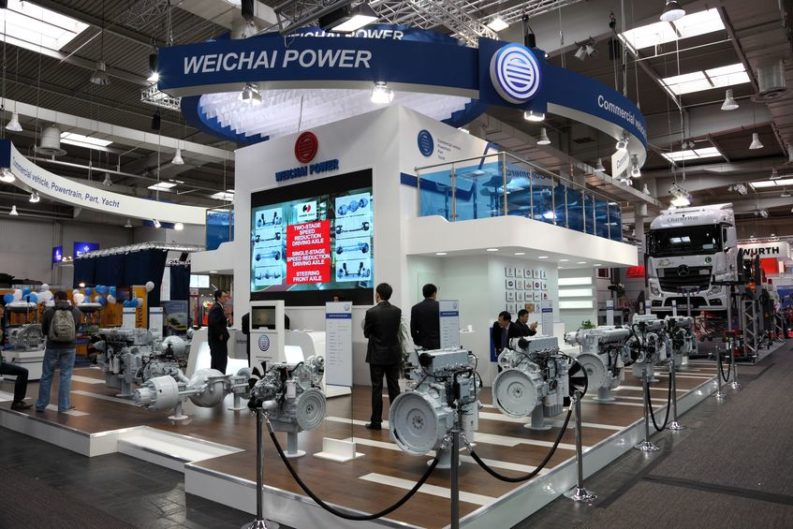
Concluding Remarks
There you have it – 30 stock investment possibilities that warrant your attention. As you may have noticed, all of these companies are global in nature, with many headquarters spread out across the planet. The COVID-19 pandemic has definitely had an influence on these selections, and in several cases, these companies went about their business in 2020 preparing for the return to normalcy in 2021 and the economic growth trends that would surely follow. Let that notion be your general guide.
Are these the only stocks that you should consider? Of course not – analysts tend to focus on industries where they have background experiences, and many lists such as this one have been published over the previous three months in private newsletters, on agent websites, and on the internet. There may be some overlap, but each list is unique. Each analyst tries to sell their case now, but rarely will you see a final accounting down the road on how these selections actually panned out.
There is one more important point to take note of: investors may have already driven up the value of many of these stocks, since recommendations may have appeared months ago. Secondly, investors may feel that stocks that benefited from the COVID-19 pandemic are overvalued. In these cases, timing of your entry will be all-important to secure a reasonable return on a popular issue. Also, check with your agent or trading website provider as to the best way to access offerings in global markets.
In this regard, it would be prudent to rely upon your favourite indicators to guide your entry, whether they are the moving average convergent divergence (MACD), relative strength index (RSI), or another momentum tool that signals oversold and overbought conditions. Preferably, you will be able to buy your chosen market security after a major dip has taken place due to profit-taking or a return to normalcy. Remember that the old adage of ‘buy low, sell high’ is still a winning strategy, proceed with caution, and let the trend be your friend. Good luck!
